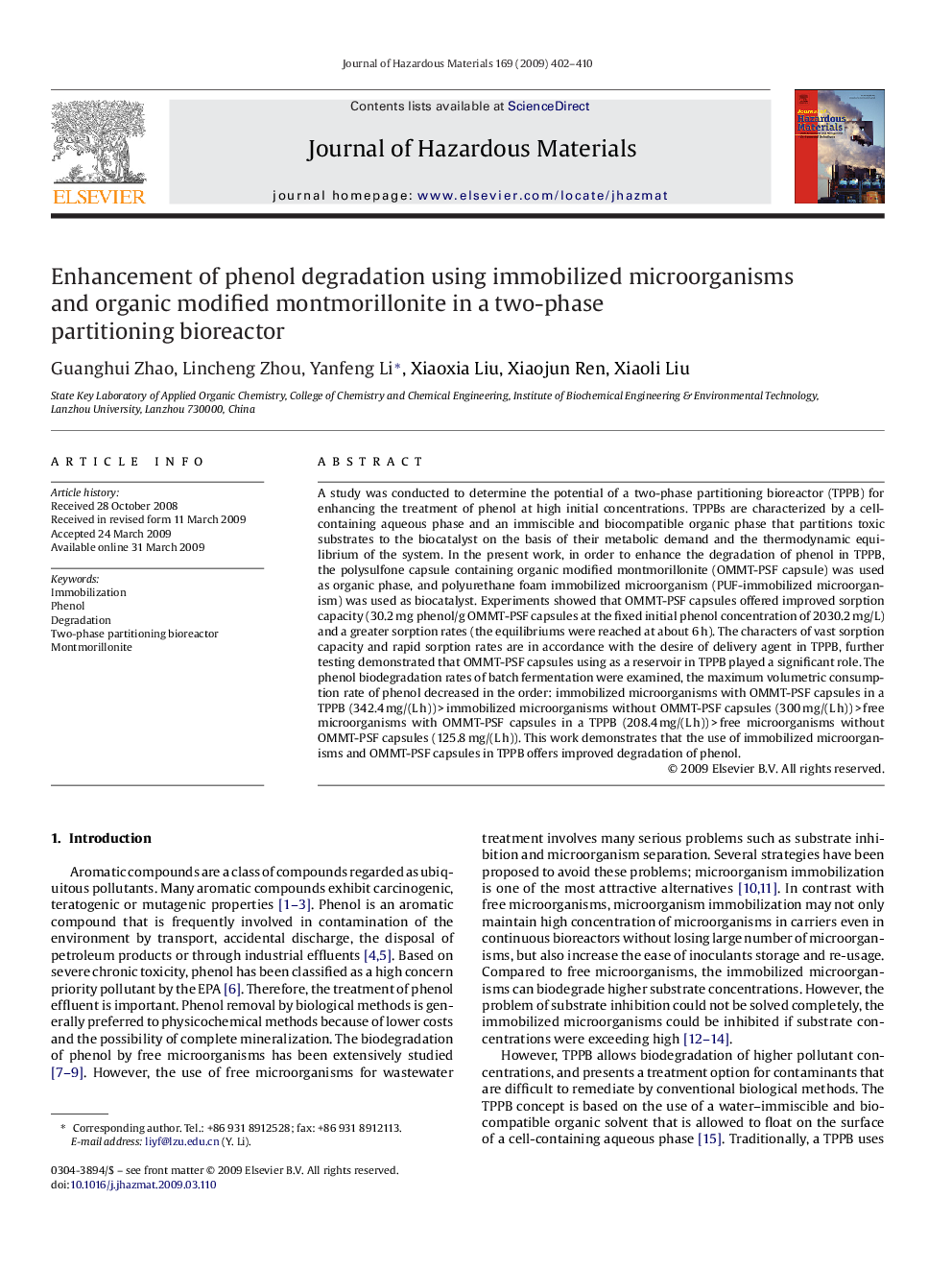| Article ID | Journal | Published Year | Pages | File Type |
|---|---|---|---|---|
| 581596 | Journal of Hazardous Materials | 2009 | 9 Pages |
Abstract
A study was conducted to determine the potential of a two-phase partitioning bioreactor (TPPB) for enhancing the treatment of phenol at high initial concentrations. TPPBs are characterized by a cell-containing aqueous phase and an immiscible and biocompatible organic phase that partitions toxic substrates to the biocatalyst on the basis of their metabolic demand and the thermodynamic equilibrium of the system. In the present work, in order to enhance the degradation of phenol in TPPB, the polysulfone capsule containing organic modified montmorillonite (OMMT-PSF capsule) was used as organic phase, and polyurethane foam immobilized microorganism (PUF-immobilized microorganism) was used as biocatalyst. Experiments showed that OMMT-PSF capsules offered improved sorption capacity (30.2Â mg phenol/g OMMT-PSF capsules at the fixed initial phenol concentration of 2030.2Â mg/L) and a greater sorption rates (the equilibriums were reached at about 6Â h). The characters of vast sorption capacity and rapid sorption rates are in accordance with the desire of delivery agent in TPPB, further testing demonstrated that OMMT-PSF capsules using as a reservoir in TPPB played a significant role. The phenol biodegradation rates of batch fermentation were examined, the maximum volumetric consumption rate of phenol decreased in the order: immobilized microorganisms with OMMT-PSF capsules in a TPPB (342.4Â mg/(LÂ h))Â >Â immobilized microorganisms without OMMT-PSF capsules (300Â mg/(LÂ h))Â >Â free microorganisms with OMMT-PSF capsules in a TPPB (208.4Â mg/(LÂ h))Â >Â free microorganisms without OMMT-PSF capsules (125.8Â mg/(LÂ h)). This work demonstrates that the use of immobilized microorganisms and OMMT-PSF capsules in TPPB offers improved degradation of phenol.
Related Topics
Physical Sciences and Engineering
Chemical Engineering
Chemical Health and Safety
Authors
Guanghui Zhao, Lincheng Zhou, Yanfeng Li, Xiaoxia Liu, Xiaojun Ren, Xiaoli Liu,
